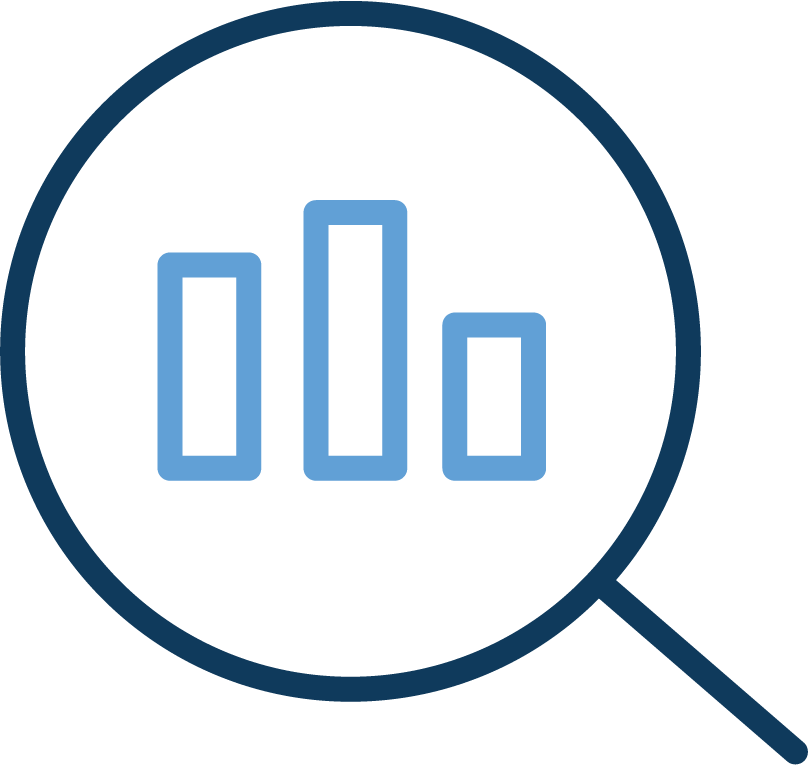BAUER Maschinen: Doubling Aftermarket Revenue from the Ground Up
BAUER Maschinen uses a pragmatic model to quantify its global service and parts potential, and steer sustained aftermarket growth.
Market intelligence enables machine manufacturers to gain a competitive advantage through in-depth market knowledge. Learn more about the role of market intelligence and AI in machine manufacturing, specifically in after sales and spare parts pricing. Download the full global parts & service report 2025 now and gain exclusive insights!
Market intelligence enables companies to gain a competitive advantage through in-depth market knowledge. Learn more about the role of market intelligence and AI in machine manufacturing, specifically in the parts business in our whitepaper. Download now!
💡Market intelligence is an ongoing process of collecting and analyzing external market data, including competitor strategies, customer insights, and market trends, to enable informed strategic decision-making and secure a competitive advantage.
💡Understanding the key elements of market intelligence – such as competitors, customers, products, and market scenarios – works in tandem with business intelligence to provide a holistic understanding of both internal operations and the external business environment, helping organizations optimize performance and anticipate market shifts.
💡Utilizing diverse data sources such as surveys, social media monitoring, financial reports, and sales feedback, combined with robust data cleansing and analytics, is essential for generating actionable market intelligence.
💡Solutions like MARKT-PILOT empowers machine manufacturers to efficiently gather and analyze market data for their spare parts business, enhancing competitive insights, pricing intelligence, and overall market understanding for sustained growth.
In a time of rapid technological developments and constantly changing global markets, market intelligence is becoming increasingly relevant in machine manufacturing.
The industry is facing challenges such as digitalization, automation, and changing supply chains. The use of market intelligence in after sales can enable efficient market monitoring and create market visibility. For example, pricing trends for spare parts can be identified at an early stage and the company's own prices can be adjusted to market changes depending on the strategy.

Market intelligence involves systematically gathering and analyzing data on market trends, customer preferences and competitor strategies. Unlike business intelligence, which focuses on internal data, market intelligence focuses on a business's external environment, including competitors, customers and market trends.
It plays a vital role in enabling businesses to make informed, data-driven decisions that help them to maintain a competitive advantage in their industry. Market intelligence encompasses various aspects such as market research, customer understanding, and competitive intelligence by focusing on the business’s external environment.
In a constantly evolving marketplace, market intelligence is essential for businesses that want to thrive. It provides a comprehensive overview of the wider market, offering valuable insights into potential opportunities, risks, and emerging trends. Market intelligence helps organizations gather information about the environment in which their business operates. By collecting and analyzing data from various sources, companies can gain valuable insights into their target customers, competitors' strategies, market size, and emerging developments. This intelligence supports informed decision-making, helping organizations strengthen their competitive position and uncover new growth opportunities.
Using market intelligence enables organizations to anticipate changes in market dynamics, manage risks effectively, and adhere to government regulations and navigate industry challenges. Market intelligence informs strategic business decisions in areas such as product development, pricing, and customer engagement by providing relevant, timely data.
A key aspect of market intelligence is competitor analysis, which allows businesses to monitor their rivals' strengths and weaknesses to ensure they maintain a competitive advantage. Additionally, insights into consumer behavior and product usage enable companies to tailor their offerings to address unmet needs and foster customer loyalty. Understanding business trends is a key outcome of effective market intelligence.
Market intelligence plays an especially critical role in industries like machine manufacturing. Manufacturing markets are dynamic, with shifting global supply chains, evolving technology, and a growing demand for automation. This requires businesses to stay informed about macroeconomic trends and the latest technological advancements. Leveraging industrial manufacturing market intelligence helps manufacturers stay ahead of competitors by identifying market gaps, optimizing production processes, and adjusting to regulatory changes. A clear understanding of customer needs and competitor strategies enables machine manufacturers to drive innovation, improve product offerings, and enhance their market share, ensuring long-term success in a competitive environment.
Market Intelligence and Business Intelligence are both vital tools for modern organizations, but they serve distinct purposes and focus on different aspects of data, playing unique roles in shaping strategic decision-making.
Market Intelligence focuses on the external factors that influence a business. It involves gathering and analyzing data about competitors, customers, market trends, and the broader market environment. This helps businesses identify market opportunities, understand customer preferences, anticipate potential threats, and adjust to shifts in the competitive landscape. By leveraging market intelligence, companies can make informed decisions about product development, marketing strategies, pricing, and positioning to gain a competitive edge in the market.
Business Intelligence, on the other hand, deals with internal data generated within the organization. This includes sales data, financial reports, operational metrics, and other data points that reflect the business's internal performance. Business intelligence tools help convert raw data into actionable insights, enabling companies to improve operational efficiency, monitor performance, and make data-driven decisions that optimize resources and profitability.
Together, they give organizations a comprehensive view of both the market landscape and their own performance. Integrating market intelligence with business intelligence empowers businesses to make better strategic decisions, respond to market shifts more effectively, and drive sustainable growth.




With the help of MARKT-PILOT and PRICERADAR's market intelligence, Karcher successfully implemented a market-based pricing strategy.

Price intelligence enables machine manufacturers with strategic insights to optimize spare parts pricing. Our whitepaper Price Intelligence in Machine Manufacturing provides the key knowledge and tools to increase competitiveness in the parts business.
Market intelligence comprises several key components that together provide a comprehensive understanding of the market environment. Market intelligence tools offer key features such as data collection, analysis, and reporting, which help streamline the process of gathering and interpreting market data. These main components include:
These components demonstrate the variety of market intelligence and work together to provide actionable insights that support strategic decision-making and competitive advantage.
Market research is a crucial element of market intelligence that focuses on the systematic collection and analysis of data to identify trends, opportunities, and potential risks. Researchers gather insights from key stakeholders, such as manufacturers, distributors, and customers, using methods like surveys, focus groups, and social media monitoring. This research enables businesses to better understand customer behavior, preferences, and unmet needs, leading to more informed decision-making and effective strategic planning.
Recent advancements in AI have further enhanced market research capabilities by enabling businesses to efficiently scrape and analyze large datasets and uncover deeper insights into market dynamics and customer needs.
Effective market intelligence depends on various data sources, such as customer feedback, online shops, sales records, and industry publications. Leveraging advanced data analytics allows businesses to identify emerging trends and react swiftly to market shifts. Robust data collection frameworks ensure that the insights gathered are relevant and actionable, supporting strategic decisions and maintaining a competitive edge.
Understanding customer demographics, behaviors, and preferences is central to market intelligence. By analyzing data from surveys, social media, and usage patterns, companies can tailor product development, marketing strategies, and customer service to better meet customer needs. This approach also helps businesses anticipate changes in consumer behavior, identify unmet needs, and stay ahead of competitors, driving customer loyalty and improving retention.
Product intelligence enables companies to make informed decisions about their product offerings by analyzing performance, customer feedback, and market trends. It helps businesses identify strengths, weaknesses, and market gaps, allowing them to refine existing products or create new ones that align with consumer demands. This intelligence drives continuous product improvement and supports growth in a competitive market.
Market share analysis is a vital tool in market intelligence, helping businesses assess their position within the industry. By tracking sales figures and comparing them against competitors, companies can identify areas of strength and weakness, adjust strategies, and capitalize on opportunities. Regular analysis helps companies stay ahead of market trends, optimize resource allocation, and pursue growth in a competitive environment.
Especially in the after sales area, market intelligence offers considerable advantages to machine manufacturers. Many OEMs do not fully capitalize on their sales potential because they do not price their spare parts in line with the market. This is where AI, such as that provided by MARKT-PILOT, offers an innovative solution for market-based spare parts pricing.
With AI tools, machine manufacturing companies can create market insight and achieve sustainable increases in sales and profits. By using artificial intelligence, market data is collected and analyzed in real-time, which would not be feasible manually.
Market Intelligence enables OEMs to develop dynamic pricing strategies based on current market conditions. This makes it possible to adjust spare parts prices in real-time, depending on supply and demand, seasonal fluctuations, or other market-related factors. This allows companies to optimize their margins while remaining competitive.
By continuously monitoring the market, companies can identify changes in the industry, for example, new competitors, technology innovations, or regulatory changes, at an early stage. This enables proactive adjustment of spare parts prices in order to always be optimally positioned in the market.
With insights from market intelligence, OEMs can develop differentiated pricing strategies for different customer segments or geographic markets. This makes it possible to set prices based on the value or willingness to pay of certain customer groups, which can result in better market penetration and higher sales.
In today's world of technology and global change, market intelligence is essential in machine manufacturing. The use of AI, especially for market-based spare parts pricing, offers significant benefits. The industry recognizes the importance of market intelligence and artificial intelligence. Join us for a discussion on market-driven spare parts pricing at the German Mechanical Engineering Summit on November 7-8, 2023 in Berlin.

Market Intelligence is the foundation for succesful market-based pricing. In our whitepaper Ultimate Guide to Marked-Based Parts Pricing we provide the key knowledge and tools to implement succesfully this pricing strategy for increased competitiveness in the parts business.
MARKT-PILOT is a specialized pricing intelligence platform that helps machine manufacturers understand the market competition. A key feature of the platform is its ability to provide market insights, enabling users to collect and analyze data on competitors' spare parts pricing and delivery times. With advanced data collection and analysis tools, MARKT-PILOT helps companies gain valuable insights into their market environment, enabling informed strategic decision-making.
Competitive intelligence involves analyzing data on competitor strategies, strengths, and weaknesses within the machine manufacturing industry. MARKT-PILOT supports the creation of effective pricing strategies by offering detailed competitor and market analysis. This helps businesses understand pricing tactics, customer price sensitivity, and identify specific market threats and opportunities across various segments.

Price intelligence is a crucial component of market intelligence for machine manufacturers.
By using MARKT-PILOT's technology, manufacturers can conduct competitive pricing analysis with precision, ensuring their pricing models remain competitive and responsive to industry trends. Our software not only helps in setting prices that maximize profit margins but also assists in identifying opportunities for market expansion by staying ahead of competitors' pricing strategies.
Additionally, the user-friendly interface and customizable features make it a preferred choice for manufacturers aiming to streamline their pricing process and maintain a competitive edge in the market.
MARKT-PILOT aftermarket pricing solutions offer:
Market intelligence is the key to a successful parts business in machine manufacturing.
Simple Implementation
Ready to use in less than 30 minutes. No integration or training required.
Accurate Results
MARKT-PILOT takes over market price research for spare parts and delivers validated results through a 1:1 comparison.
+24,500 data sources
Access to validated data points from various online and offline sources for unrivaled data accuracy.
Customer Success Story: Kardex Mlog
THE CHALLENGE
Achieving optimum prices while maintaining customer satisfaction is an extreme challenge for machine manufacturers. This was also the case for Kardex Mlog.
Until now, price differentiation could only be defined by product groups and was therefore associated with a great deal of effort. Additionally, price adjustments only occurred once a year. With customers able to obtain information about prices, delivery times, and the availability of spare parts on the market at any time, Kardex Mlog was faced with a challenge.
EFFICIENT PRICING WITH STRONG MARKET DYNAMICS
The solution? PRICERADAR from MARKT-PILOT. Kardex Mlog has been using the MARKT-PILOT solution for more than a year and has been able to immediately react to market dynamics by conveniently adjusting spare parts prices several times a month.
Especially with the current market dynamics, it pays to have a tool like PRICERADAR. After all, what’s wrong with adjusting prices three times a year? Mlog’s customers also benefit from the increased flexibility and consistently increased potential.
Market intelligence is essential for businesses that want to remain competitive and achieve long-term growth. As markets evolve due to technological advancements, globalization and changing consumer behaviors, market intelligence becomes increasingly valuable. Those that effectively leverage this data can identify opportunities, anticipate competitor moves and adapt to market changes.
Advancements in AI, machine learning and big data analytics will shape the future of market intelligence, enabling faster data processing and real-time insights for quicker, more informed decision-making. A customer-centric approach will continue to be a driving force in market intelligence, helping businesses to tailor their products and marketing strategies to enhance customer loyalty and increase their market share.
However, ethical considerations and data privacy regulations will also influence market intelligence practices. Companies must comply with these regulations and maintain transparency to build trust with customers and stakeholders.
In summary, market intelligence is essential for strategic decision-making and business success. By embracing emerging technologies, focusing on customer insights and upholding ethical standards, organizations can harness its full potential and remain competitive in a complex business environment.

Market intelligence is the process of gathering and analyzing data about market trends, competitors, and customer preferences. It is important because it helps businesses make informed decisions, anticipate market changes, and gain a competitive advantage.
Market intelligence focuses on external factors such as competitors and market trends, while business intelligence analyzes internal company data like sales and operations. Both are essential for comprehensive strategic planning.
The key types include competitive intelligence, product intelligence, market understanding, and customer understanding, each providing insights into different aspects of the business environment.
Companies collect data through surveys, interviews, social media monitoring, sales data analysis, and public sources. This data is analyzed to identify trends and inform strategies across marketing, product development, and risk management.
Common challenges include ensuring data accuracy and relevance, maintaining ethical data collection practices, cleansing data for quality, and effectively communicating insights within the organization.
BAUER Maschinen uses a pragmatic model to quantify its global service and parts potential, and steer sustained aftermarket growth.
Understand how OEMs can protect margins and handle tariff impacts with data-driven pricing strategies, focusing on critical parts and market trends.
Cross-selling and up-selling initiatives are among the most effective levers in the spare parts business. Find out why!